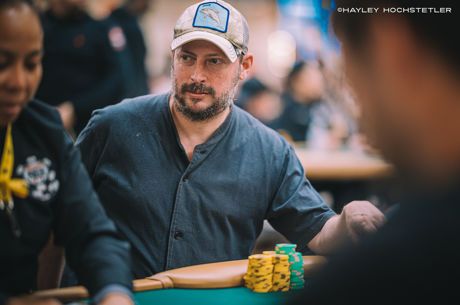For French Online Poker Players, 'Grand Frère' is Watching

As mentioned previously on this site, the United States is far from the only country whose legislators persist in taking passionate stances against what they view as the 'evil' of online gambling. Without even considering those countries where Internet gambling has always received blanket prohibition (typically based on the decrees of an official state religion), legislators of several 'open' Western countries have sought either to severely crimp gambling over the Internet or ban it in its entirety.
Examples of this in recent years include measures passed or under consideration by Italy, Sweden, and more recently, Russia. Now, word comes via a recent Poker News France story that French legislators are considering a new measure, a portion of which bears strong similarities to that bane of U.S. online gamblers, the UIGEA.
The French anti-gambling language is part of an omnibus nanny-state measure carrying the overall tag of 'delinquency prevention,' and was introduced by France's Minister of the Interior, Nicholas Sarkozy, following France's 2005 riots. The overall measure tries to claim the moral high ground with passages noting, among others, the 'delinquency among minors of an increasingly young age.' Another section of the law, providing for a large expansion of mayoral security powers, has brought thousands of protestors to the streets in the past week.
Two "amendments," numbers 254 and 255, target online gambling specifically. The first, Amendment 254, is the attack on the financial tools and conduits online gamblers use. It is intended to 'allow' (read: force) banks to put into place 'specific tools' that will allow banks to prevent transfers to and from known gambling sites or, presumably, known gamblers themselves. The law's purpose, to freeze asset flow, targets the 'physical or moral persons involved in the organization of gambling, betting or lotteries prohibited by French law.'
Amendment 255, by comparison, would attack the Internet itself, forcing information providers such as AOL or Club Internet --- or presumably, any web portal or site with a French presence --- to provide a message to all French visitors that a desired, click-through link would go to a site 'identified as reprehensible by the minister of the Interior.' These access providers would be forced to inform these surfers (and presumed online gamblers) of the risk in participating in 'games operating unlawfully,' and non-complying access providers would face hefty fines --- up to 75,000 euros --- and possible imprisonment.
One could make light of the fact that within the greater measure, online gamblers are lumped in with some of the defining issues of our time --- delinquents on public transportation, pit bulls loosed in bad neighborhoods, and the like --- but there's a greater issue here of which all online gamblers should be aware.
Online gambling is one of a very small number of hot-button issues that sits at the very crux of a slippery slope, helping to define the proper role of government in a freedom-of-information, Internet-driven age. Anti-freedom absurdists invariably trot out the old saws about terrorism prevention and child pornography, but as we've seen here in the U.S., the real motivation for their posturing is financial more often than not. Governments want to control the Internet because it is profitable for them to do so; freely allowed electronic-transaction capabilities lay bare all the bogus protectionist policies of our day.
We all just want to play poker, but we're stuck with this greater truth: Whatever online gambling's fate, it is one of the key factors that will determine the shape of --- and control over --- the Internet itself.








